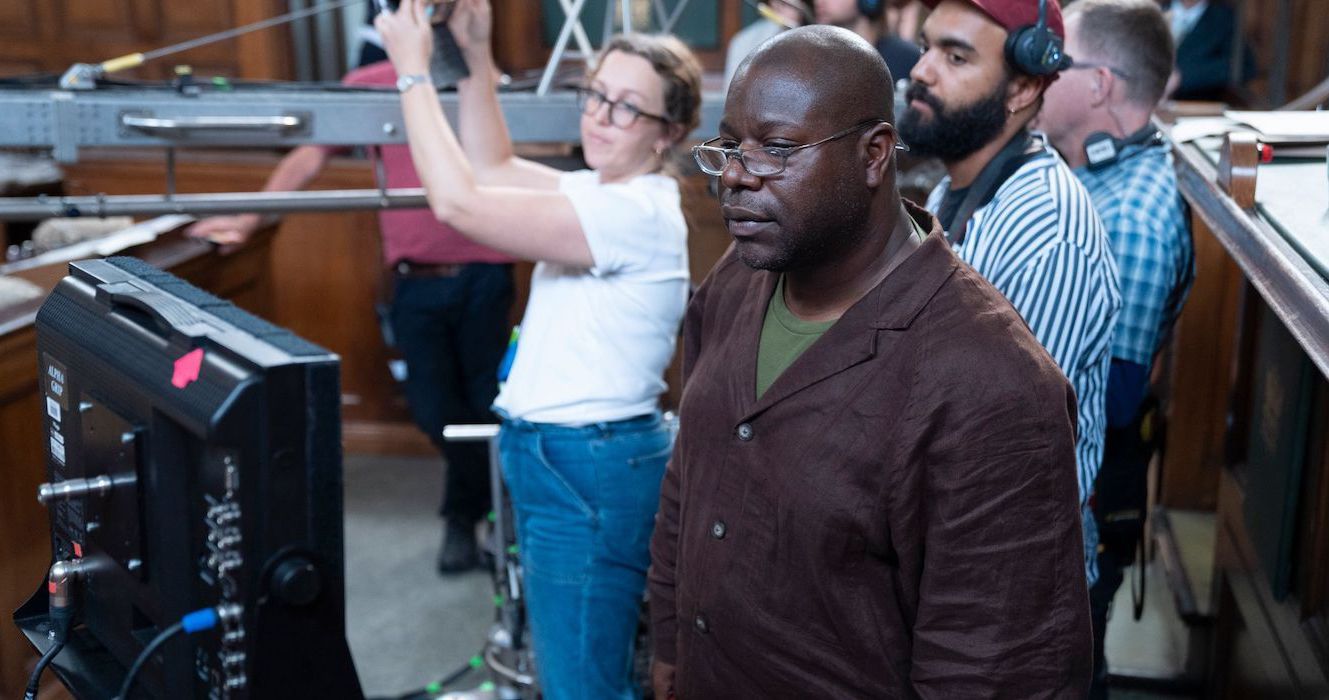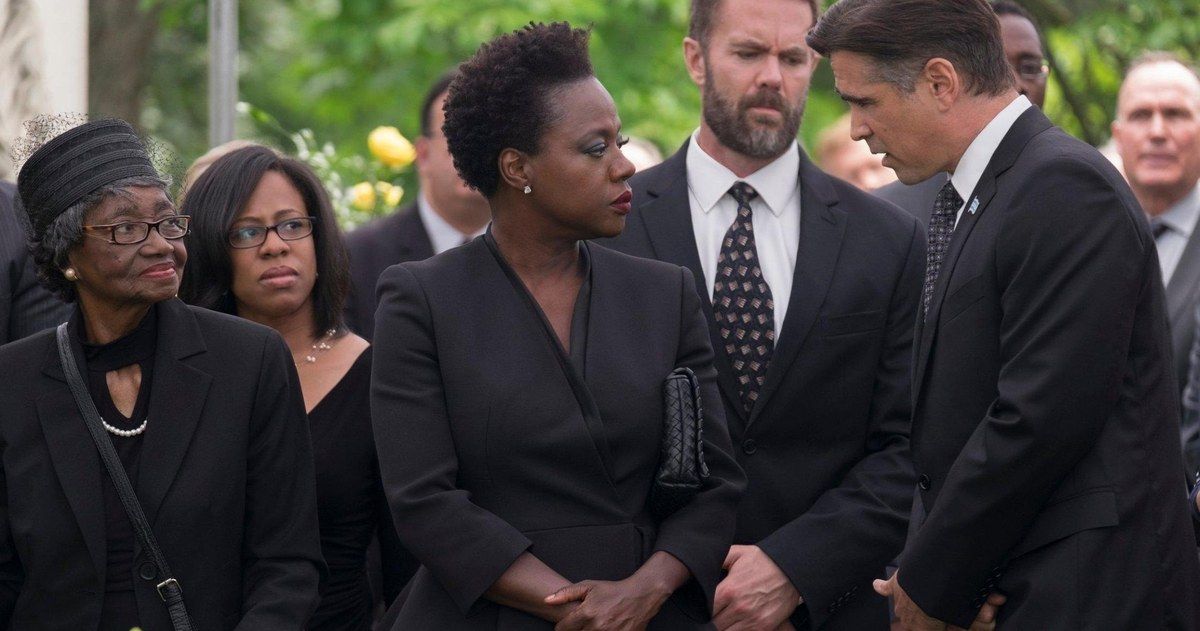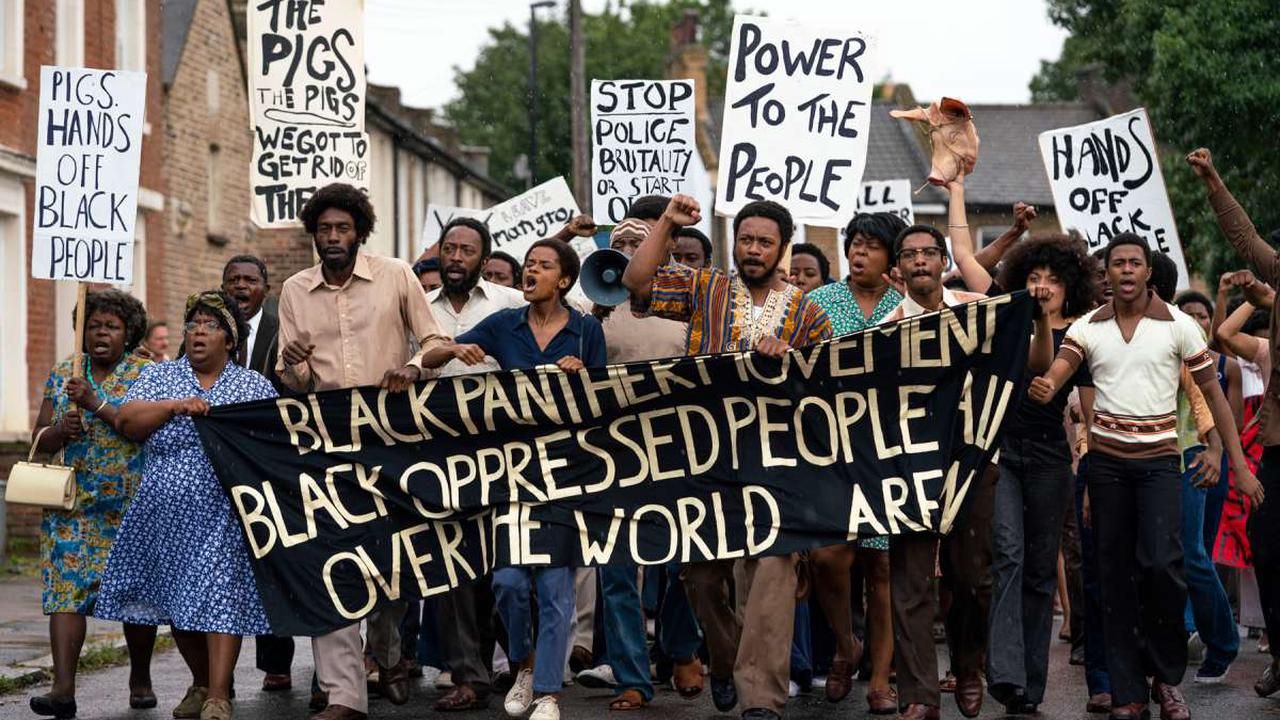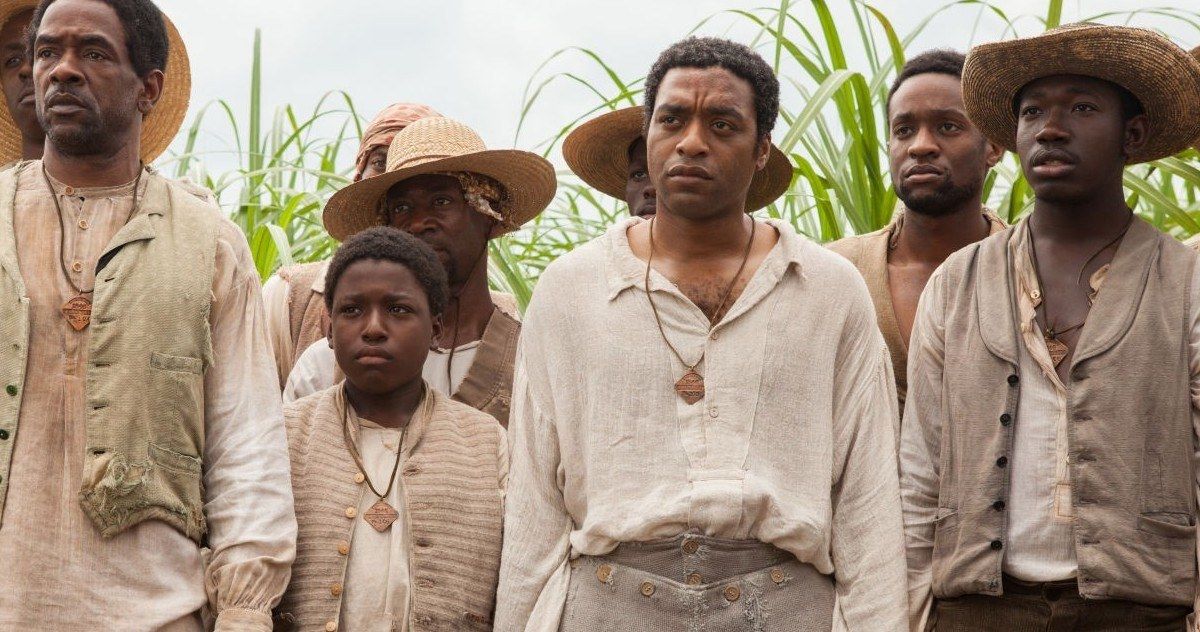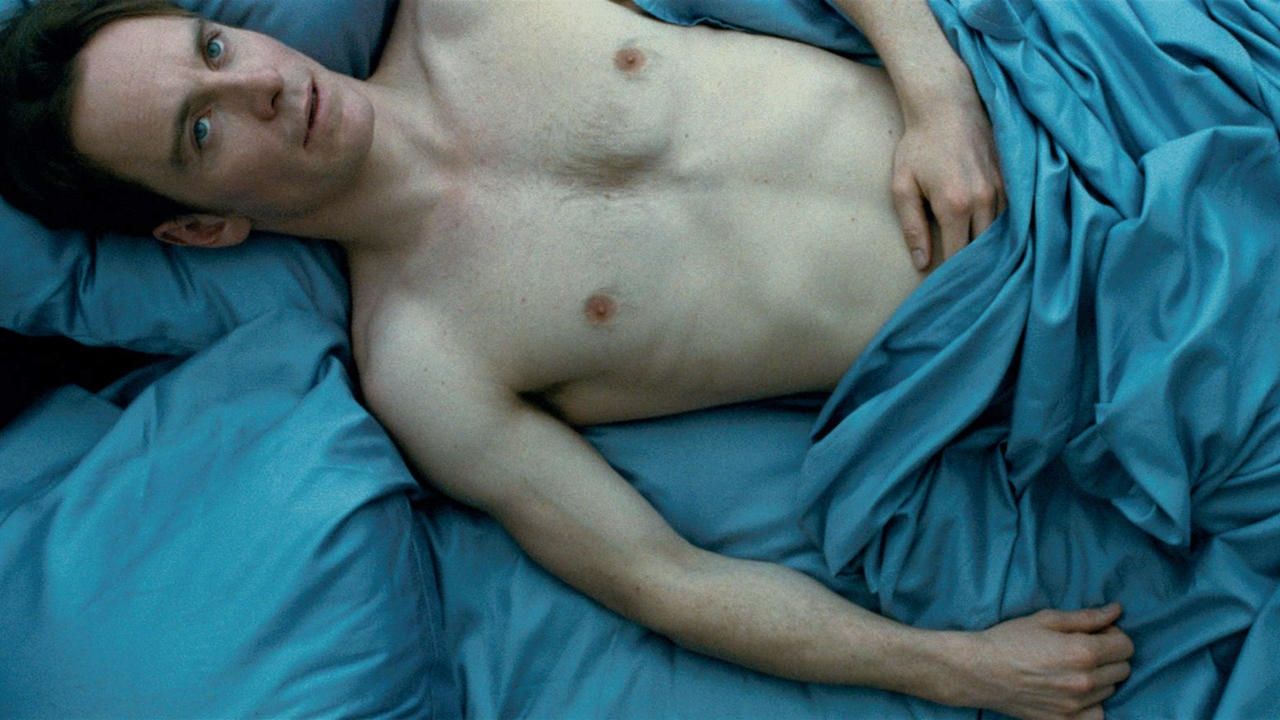There are filmmakers who make entertainment and there are those who craft experiences. Celebrated British filmmaker Steve McQueen (not to be confused with that Steve McQueen) has created some of modern cinema's most uncompromising and intellectual works of art, and has steadily progressed with almost each new film. McQueen started off as a visual artist but launched into filmmaking with his 2008 feature Hunger, which premiered at the Cannes Film Festival and won the Camera D'or among several other awards and prizes. The film launched his and its star's Michael Fassbender's careers, and the two continue to collaborate.
From there, McQueen's career took off, and he has since released several award-winning and critically-acclaimed films. While his filmography may be small, the impact each of these films has had on audiences and critics alike (and on Black cinema in general) is anything but. Here, we're dissecting one of the most fascinating bodies of work in modern cinema, and will see which of these unique achievements stands above all the rest.
5 Widows
For a director as intensely personal as McQueen, adaptations don't come often, but when they do, few come across as white-knuckle and fierce as Widows. The 2018 film serves as an adaptation of a British television series and is written by Gillian Flynn of Gone Girl and Sharp Objects fame. The film follows the widows of a group of bank robbers led by Viola Davis who, after their husband's deaths, find themselves having to repay their debts to a menacing crime lord (Brian Tree Henry). Under McQueen's direction, Widows becomes a fascinating study of female empowerment and marginalization while also being a strongly crafted and tense heist film. McQueen handles the genre aspects with ease and demonstrates confidence in his stellar cast which includes Davis, Robert Duval, Liam Neeson, Michelle Rodriquez, and Cynthia Ervo. Widows could've been just another generic thriller, but McQueen ensures its much more psychological and complex than that.
Widows might not be McQueen's most inventive film, but it does prove that he can craft accessible cinema while still maintaining his own personal artistry in the process. Widows did respectfully at the box office and earned strong reviews, proving McQueen can effectively handle the mainstream lane as well as the art house.
4 Small Axe
While technically a series of roughly hour-long films, Small Axe is an anthology consisting of five stories exploring the lives of west Indian immigrants throughout the 1960s to the 1980s. Small Axe is notably powerful in how it explores themes of racism, social injustice and identity while demonstrating McQueen's flair for storytelling. Each individual segment contains its own impact and is distinct in both tone and filmmaking, although the entire piece works as one of 2020's best 'movies' as a whole. McQueen taps into our cultural moment with the powerful courtroom drama of Mangrove, and Lover's Rock showcases a tribute to Black culture and music that's genuinely moving. Other segments such as Red, White and Blue highlight issues such as police brutality and corruption, and McQueen's confident touch ensures that all these issues are explored with sincerity and sophistication. With Small Axe, McQueen offers a strong representation of his dynamic skill set, along with a topical, heartfelt and vital collection of stories added to his filmography.
3 12 Years A Slave
The film that helped catapult McQueen's name into the mainstream, 12 Years a Slave made a strong impact upon release, earning critical acclaim and Academy Award wins and nominations as well. Telling the true story of Solomon Northup (Chiwetel Ejiofor), a free African-American man who is kidnaped and sold into slavery for 12 years, the film is (like much of McQueen's work) uncompromising in exploring Northup's suffering and endurance as he strives for his freedom. McQueen also casts a penetrating eye on human morality as he examines the hideous behavior of the plantation owners and the power dynamics they share with their slaves. McQueen is in strong visual form here and commands captivating performances out of Ejofor and an ensemble including Michael Fassbender and Sara Paulson, Brad Pitt, and a star-making turn from Lupita Nyong'o. 12 Years a Slave also showcases a strong sympathy for its protagonist but wisely attempts to avoid the white savior narrative and showcases Solomon's strength and smarts.
The film's pacing and narrative may be a bit conventional and at times formulaic compared to other McQueen works, however, its visceral impact manages to pack a punch. The film truly acknowledges the brutality of its subject and is a captivating if difficult experience. 12 Years overall is a showcase of McQueen's ability to explore familiar territory within his distinct talents. The results are one of his most commercially and critically successful films to date.
2 Shame
McQueen's best films often benefit from their intimate and singular focus on the internal struggles of a specific character. His 2011 sophomore film Shame is a searing and heartbreaking look at sex addiction starring Michael Fassbender as Brandon Sullivan, a man who seemingly has it all on the surface but underneath struggles with his rampant addiction to sex. The film focuses on his fraught relationship with his sister Sissy and how his addiction is impacting his relationship with those around him. Shame could've easily taken a comedic approach like Don Jon or been a romp; McQueen instead frames Shame as a brutal and sparse character study of a wounded soul who can't quite seem to connect with anyone despite his most intimate efforts to do so. He gets arguably a career-best performance from Fassbender, who delivers a study in simmering intensity and soulful anguish, and Carey Mulligan matches him with an equally commanding performance. Shame also benefits from McQueen's understated approach, which avoids easy sentimentality or moralizing.
Shame garnered both acclaim and controversy upon release, helping further solidify McQueen's reputation as a bold storyteller and filmmaker. Shame, according to McQueen, was intended to be thought-provoking, and the end results have certainly left an impact on viewers. The film received nominations upon release and also helped cement Michael Fassbender as a leading talent. Shame showcased that McQueen's early promise as a filmmaker was no fluke and indicated a singular talent finding his voice.
1 Hunger
For a filmmaker to announce their full talent right out of the gate in their first feature is rare, but Steve McQueen provided extraordinary proof of this with his stunning and harrowing debut feature. Hunger follows the life of prisoner Bobby Sands, who helps lead the hunger strike in Maze Prison. Hunger's incredible cinematography and design truly illustrates the brutal and harsh conditions these prisoners existed in during The Troubles of Northern Ireland, and McQueen manages to invest viewers on a personal scale through Sand's perspective. McQueen also humanizes the prison guards themselves with some brilliant images, allowing for a layered take on what could've been a by-the-numbers protest film. Hunger also benefits from McQueen's visual storytelling, which creates a sense of time and place that underlines the message of the film. Sandwiched in between two brutal parts is a lengthy, 16-minute single take of an emotional, theological and intellectual conversation between Sands and a priest, and the scene is the beating heart of a brilliant film.
Hunger was received warmly upon release and McQueen was heralded as a talent to watch. It was nominated for several awards and from there, McQueen became a rising talent alongside Michael Fassbender in his first leading role. McQueen has since gone on to make many more notable films, as mentioned, but the raw and poetic beauty of Hunger remains his most haunting achievement to date.

